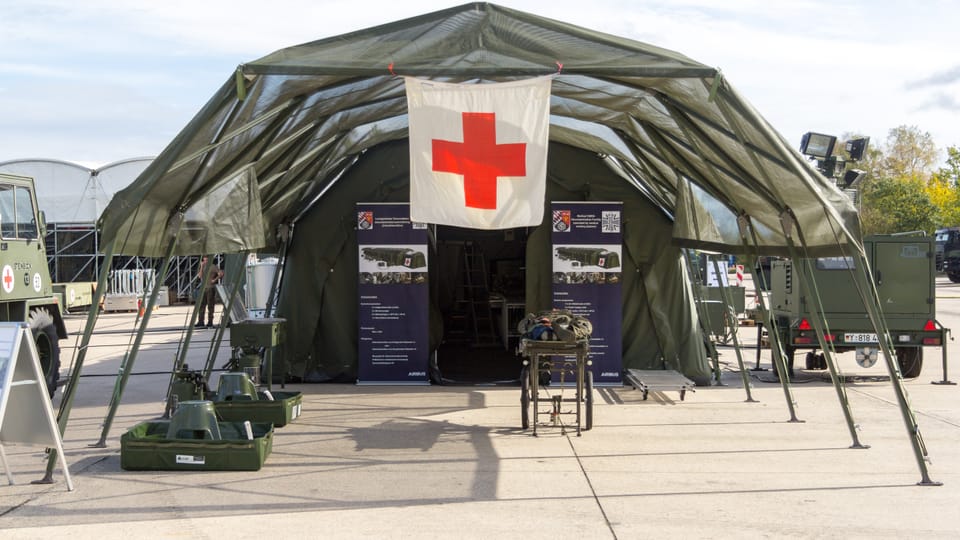Combat Support Ratio

Combat Support and Missionaries
As of 2014, only 17% of the U.S. Department of Defense personnel (think Army, Navy, Air Force...) were classified as performing combat roles (Modern Army Logistics). With roughly three million employed by the DOD, that means about 510,000 are qualified to serve in direct combat while 2.49 million serve in Combat Support roles only — a ratio of about 1 combat for every 5 support troops.
So what does this have to do with mission work?
Spiritual Warfare
“For our struggle is not against flesh and blood, but against the rulers, against the authorities, against the powers of this dark world and against the spiritual forces of evil in the heavenly realms.” — Ephesians 6:12
Sometimes we forget that Christians are locked in a very real battle with an unrelenting enemy. Nowhere is this more evident than on the mission field.
As we’ve noted before, over 50% of missionaries leave the field within their first five years. (How Many Missionaries Leave…),That means the enemy is effectively “winning” the spiritual war half the time.
A lot of this attrition can be tied directly back to the amount of Combat Support a missionary receives.
Combat Support for Missionaries
Just like soldiers, missionaries need strong support structures to stay effective. There are four essential “Combat Support” groups for Missionaries:
- The Sending Church
- Family and Friends
- Co-Workers on the Field
- A Professional Sending Agency
Each plays a specialized support role to our Missionary Troops in the field.
If one of these support structures is missing, a missionary’s effectiveness — and long-term survival in the field — is at risk.
The Role of a Sending Agency
While most people are familiar with the role of a church, family, and co-workers, in supporting a missionary, the role of a Professional Sending Agency is often overlooked or misunderstood.
Sending Agencies are specialist who help in the sending and retention of missionaries by providing professional support to the other three support groups.
Key functions of a Sending Agency include:
- Mobilization: Helping identify and encourage those called to missions.
- Training: Equipping missionaries with cross-cultural, language, and ministry skills before and during their deployment to the field.
- Support Raising: Providing structure and guidance in building and maintaining a sustainable financial base.
- Guidance & Oversight: Offering mission strategies, decision-making help, and crisis management.
- Member Care: Proactively tending to spiritual, emotional, and physical health.
- Logistics & Administration: Managing visas, housing contracts, health insurance, travel, donations, and more.
Why This Matters to You as a Supporter
When you give to a missionary, you are making an eternal investment in the advance of the Gospel. But your investment will only bear lasting fruit if the missionary(s) you support have the Combat Support structures in place to thrive long-term.
Supporting a missionary who is “going it alone,” without the full backing of a Sending Church, Family and Friends, Co-workers in the field, and a Sending Agency, is like sending a soldier to the front lines missing key pieces of body armor, supply lines, or reinforcements.
Your role as a supporter is more than just giving money — it’s helping to ensure that the missionary you stand behind is fully equipped, fully covered, and fully supported in the battle.
When you help provide that level of support, you are not only protecting your investment — you are helping ensure that the Gospel continues advancing, and missionaries can remain faithful and effective where the battle is fiercest.
Call to Action
Have a conversation with the missionary(s) your support or are looking at supporting. See what type of Combat Support they are receiving and then help them to fill in the gaps that will insure they will remain in the Field longer and stronger!
Questions you can ask a missionary to identify if they are properly supported:
- What type of support structures do you have in place?
- What type of language training did you or are you receiving?
- Who takes care of your visas/work permits?
- If you have medical issues in the field, who do you call?
- Who helps you with conflict resolution in the field?
- What percent of support have you raised - who is helping you raise support?
- Who do you report to and what does that reporting look like?
- When you are spiritually low and want to quit, who do you call?
The idea of these questions isn't to meddle in a missionary's business, it is to show you care about them and your investment.
Remember, FIFTY PERCENT of all missionaries leave the field in their first five years. They are leaving because one, or several, of these questions were never ask or answered.
What About God?
It is absolutely true that we can do "...all things through Christ who strengthens me." (Philippians 4:13) But it is also true that "... a chord of three strands is not easily broken" (Ecclesiastes 4:12)
God never meant for any of us to "go it alone". He gave us each other to lean on as we fight the good fight. No where is this more evident than in the mission field.
For More Information on Sending Agencies and how they can work with your Church and Missionary, Contact Paul Keller at One Mission Society. He is a great source for "all things Sending Agency related". pkeller@onemissionsociety.org


 English
English Español
Español Français
Français

